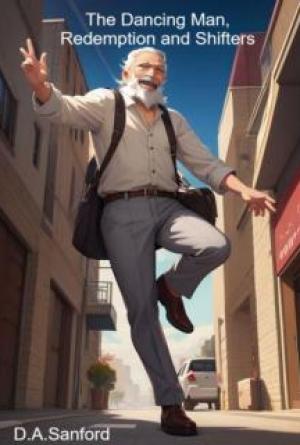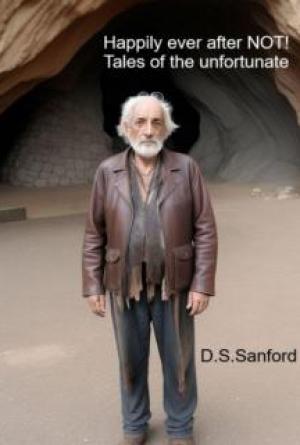V
OWEN AND LUCILLA
(i)
IT was nearly a year later that Owen Quentillian went to Torquay to see Lucilla Morchard, and asked her to marry him.
Nothing in the occasional letters that they had exchanged could have been regarded as in any way indicative of such a dénouement, and for once Owen saw Lucilla thoroughly disconcerted.
“But why?” she demanded, in a tone at once wistful and indignant.
Her face was pale and lined, but her eyes had lost neither humour nor sanity of outlook.
“Not for the only reason that it ought to be, dear Lucilla,” he answered humbly. “But because of the awful loneliness at Stear, and my own weakness which makes me afraid of it. And a little because of your sadness here, perhaps, but most of all because you are the only person I know who can face facts, and then be happy. It’s the most wonderful combination in life.”
“You have faced facts, yourself.”
“And it has only brought me bitterness.”
She reflected for a moment and then said:
“That’s true. But you won’t find your remedy in marriage with me, Owen.”
Her voice held all its old crisp, common-sense.
“Are you staying to tea, because if so, my aunt will want some warning. She is old, and fussy, and there’s only one maid.”
They had met out of doors.
“Pray don’t let me cause any inconvenience,” he said stiffly, offended by the irrelevance.
“It won’t be in the least inconvenient,” Lucilla assured him kindly. “Aunt Mary likes to see people, very much, it’s a new interest for her. Only it worries her if the drawing-room fire isn’t lit, or there’s no cake for tea. Things like that, you know.”
He hardly did know, so different was his own world, and he could scarcely credit that Lucilla, the erstwhile mistress of St. Gwenllian, could know.
“You’ve remembered, of course,” she said reflectively, “that I’m several years older than you are?”
“What can that matter?”
“Nothing at all, certainly, if you’ve faced the risk that it entails and are prepared to take it. But, of course, that isn’t the only risk, Owen.”
“I suppose not. Is this an acceptance, or a refusal, Lucilla?”
They both broke into laughter.
“Here we are,” said Lucilla, stopping at a little gate in a row of other little gates. “I’ll walk with you to the station afterwards.”
She paused, with her hand on the little gate, and looked at him.
“It’s only that we are—or we ought to be—past the stage of following a generous impulse and hoping for the best. I—I don’t want either of us to bite off more than we can chew.”
On the elegance of her simile, Miss Morchard opened the front door of “Balmoral” with a latchkey, allowing no time for a reply.
She left Quentillian in the tiny, red-tiled hall while she went into a room opening out of it, that was as obviously the drawing-room as the room on the other side was the dining-room.
Quentillian looked round him, at the walls crowded with foolish brackets and bad water-colours, at the painted deal staircase and balusters, at the window on the landing that looked out on to little back gardens, all of exactly the same size and shape, and had a momentary vivid recollection of the shabby, dignified rooms at St. Gwenllian, and the old cedars close to the tennis court.
Lucilla had been fond of gardening.
From somewhere in the basement came the screeching note of a parrot.
Then Lucilla summoned him.
The drawing-room was exactly what he had expected it to be, and so was the aunt.
She talked a little about Torquay, and explained that she knew some of the residents, but none of the visitors, unless there was “a link,” and she asked Owen if he had read the life of Mary Slessor of Calabar.
He had not.
“You ought to read it. She was such a wonderful person,” said the old lady with enthusiasm, and she talked about foreign missions for some time, though even this failed to enlighten the uninterested Quentillian on the identity of Mary Slessor of Calabar.
Lucilla did not talk very much—but, then, she never had talked very much.
The old aunt referred to her several times, and once said to Quentillian: “My niece is clever, you know. She reads a great deal. I like having an opinion to go by, and she chooses my books for me so much better than the girl at Boots’ lending library. So many people just go by the name of a book, I fancy, but Lucilla and I like to know something about the author as well.”
She spoke with a faint air of justifiable pride.
Quentillian suddenly thought of the mountain of manuscript concerning Leonidas of Alexandria, at the laborious compilation for which Lucilla had worked for so many years. He heard the oft-repeated tag of which Canon Morchard had been fond: “Lucilla, here, is our literary critic.”
A small, panting maid brought in tea, and the old lady poured it out, and was very meticulous in inquiring into Quentillian’s precise tastes as to milk and sugar.
As soon as he could, he made his farewell.
“I hope you’ll come again, now you’ve found the way here,” said Lucilla’s aunt, kindly.
Lucilla, as she had promised, went with him, when he left “Balmoral.”
They walked in silence for a little way and then Owen said pleadingly:
“You’ll let me take you away from that, won’t you, Lucilla? It’s an impossible life for you.”
“Why do you confuse the issue like that? It’s just what I said before—you want to follow a generous impulse without counting the cost. My life has really nothing to do with the question.”
He was frankly confounded.
“I thought it might be an argument in my favour,” he said resentfully.
“There’s only one thing that could really count in that way—well, two things, to be accurate. Your need of me, Owen.”
“It’s quite real,” he returned levelly. “I’m lonely, and yet the company of most of the people I know rather annoys me. And there’s another thing. I’m frightened, very often. It’s since the war, and—and you know I’d been shell-shocked, as they call it? I’ve thought lately that if you were there—the realest person I know—I shouldn’t be frightened, at Stear. I’m giving you facts, Lucilla—not romance. We’ve both missed that.”
“Val didn’t stand to you for romance, did she?”
“No.”
Quentillian could think of nothing at all to add to his bald negative.
“Well, we’ve faced your risks,” said Lucilla. “What about mine?”
“The worst one is that you should find me an intolerable egotist,” he said rather unsteadily.
“We can discount that.”
She spoke curtly, and he made no rejoinder, uncertain of her meaning.
“What was the other argument that might count in my favour, Lucilla? One was my need of you. I think I’ve shown you that. But you said ‘two things, to be accurate.’ Tell me what the other was.”
“Is,” she corrected, with a sound that was very nearly a laugh, and that caused him to look at her.
She faced his gaze with all her own steadiness, but for the first time he saw Lucilla’s mild imperviousness her implacable matter-of-factness, as a shield for something infinitely fragile and sensitive.
Her voice, always quiet, was quieter than ever when she spoke.
“It’s fair to tell you, I think. I’ve loved you for a long time now. So you see my risks would be greater than yours, Owen. That’s why I was afraid of impulse. But you see I’ve told you this—which was rather difficult to say—because it seems to me that our one chance lies in absolute honesty. We’ve faced the fact together that you’re—just lonely, and that’s why you want me—but—we’ve got to face the other fact too—both of us—I mean that, for me—you do stand for romance, Owen.”
Her voice had not altered, but the effort with which she had spoken had brought tears, that Owen had never seen there before, to Lucilla’s eyes.
Nevertheless she smiled at him valiantly.
For the first time, perhaps, since his childhood, Quentillian found himself unable to analyse his feelings or to translate them into tersely sententious periods.
In the long silence that fell between them, there began a process by which he slowly reversed certain judgments, and eliminated certain axioms, which hitherto had stood to him for wisdom.
But it was with scarcely any knowledge of this, that Owen Quentillian, reduced at last to making an appeal, asked Lucilla Morchard once more:
“Will you marry me? The risks are all yours—will you take them?”
With her most characteristic gesture, she bent her head in assent, neither impulsive nor emotional, but fully accepting responsibility, and said seriously and gently:
“Yes, Owen, I will.”







